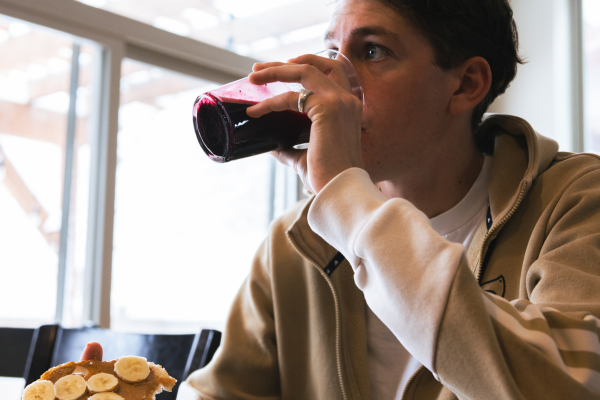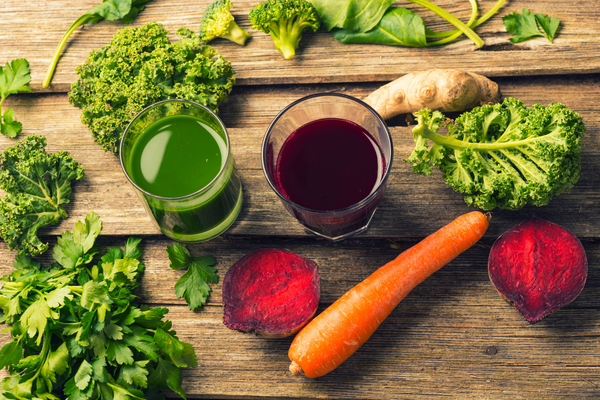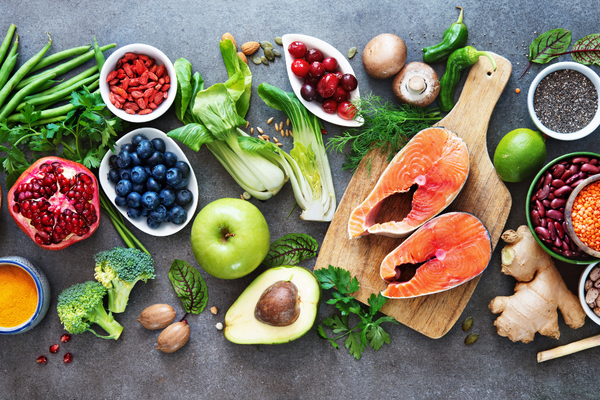Nutrition probably isn't the first thing that pops into your mind when it comes to improving sports performance.
In fact, it probably isn't the second, third or fourth thing either.
If you're like most people, you'll think about training - the physical workouts that improve your strength, power and endurance, and the technical training to improve the specific skills you need for your sport.
But training is just one of the three pillars of sports performance.
Recovery and nutrition are just as important and can make or break your athletic performance. That's why it's so important to learn how to eat smart like an athlete!
In this article, we'll discuss what athletic nutrition is and what kinds of foods are best for getting the most out of your workout routine. We'll also talk about how sleep affects athletic performance the importance of nutrition for improved recovery, and explore some of our favourite supplements for athletes looking to boost their energy levels while staying healthy (and performing better!)
What is athletic nutrition?
Athletic nutrition is a combination of eating right and training right. Athletes need to eat foods that are high in protein, carbohydrates and fats, as well as low in fat and sodium. For most athletes, this means eating a balanced diet.
The following are examples of athletic nutrition plans for various sports:
- Basketball - Eat plenty of fruit and vegetables before practice or games. Drink lots of water before practice or games as well so you don't get dehydrated during your game or practice session.
- Soccer - Try to eat healthy snacks before soccer games because they will give you energy throughout the game! Also try not to drink too much soda because soda has lots of sugar that can make it hard for you when playing soccer later on! If there isn't any food available during your soccer game then just have some water instead!
If you're looking for a detailed guide covering nutrition plans for specific sports, we've got you covered with prescriptions put together by a Registered Sports Dietitian.
Why do you need athletic nutrition?
Athletic nutrition is a practice of eating in a way that helps you perform at your best. It isn’t just about what you eat, but when and how much of it you consume.
For example, many athletes consume high-carbohydrate diets because carbohydrates provide the energy needed for training and competition.
However, if an athlete consumes too much carbohydrate before an event (such as by eating a large pasta meal or drinking copious amounts of sports drinks), she may experience bloating or nausea during competition due to gastrointestinal distress caused by the sudden influx of nutrients into her bloodstream.
This can cause her performance to suffer as she fights with her body's ability to absorb all this food so quickly!
By contrast, if an athlete has just enough carbohydrate in his diet (about 30%–40% of daily intake) he won't feel bloated while competing against opponents who are stuffed full of pasta!
How to eat smart like an athlete
When it comes to eating, athletes have a higher-than-average number of things they need to worry about.
- Eat lots of fruit and vegetables—Athletes need more carbs than the average person, so you should aim to eat at least three meals that include fruit and/or veg every day.
- Eat plenty of lean protein—Protein helps muscles repair after exercise, so make sure you're getting some in at each meal.
- Drink lots of water—ideally before, during and after exercise (and whenever else you feel thirsty). Your body needs fluid to function properly; dehydration can really affect your performance or even lead to heatstroke if it gets too severe!
Make sure you check with your doctor if there are any specific rules about the amount or type of liquid intake required based on your health conditions or whether any medication may interact negatively with water consumption during activity periods (e.g., diuretics).
If in doubt about what's safe for YOU TO DRINK then ask someone who knows more than just a bit about these things but who also shares YOUR interests as well--like perhaps an athletic trainer?
How to get into an athletic mindset
The first step in becoming an athlete is to adopt an athletic mindset. It's not about being a great athlete; it's about thinking like one. Here are some tips for doing so:
- Focus on the task at hand and be present in the moment. You should be fully aware of your surroundings, especially when you're lifting weights or performing high-intensity cardio workouts.
- Visualise your goals, set yourself small goals and be confident in your abilities. If you want to race 100m faster than ever before, think about how much training you've done and how much better you feel compared to when you started out—and then do it! If it doesn't go according to plan don't worry! Everyone goes through ups and downs; just keep working hard and stay positive!
Ways to improve your sleep
- Practise good sleep hygiene.
- Get more sunlight during the day.
- Avoid caffeine and alcohol close to bedtime.
- Set a regular bedtime and wake up time, even on weekends.
- Try to get 7-8 hours of sleep every night.
Eating right can boost your performance
The table below outlines the optimal dietary requirements for athletes. The following guidelines should be adhered to in order to ensure you are getting the most out of your training plan:
- Eat a balanced diet. There is no magic formula for perfect nutrition, but there are some general principles that can help you achieve peak performance on game day. These include eating at least five servings of fruits and vegetables every day (in addition to five portions from each food group), as well as incorporating complex carbohydrates into your daily intake through whole grains and fibrous vegetables such as broccoli or peas. Protein should also be included in your diet—it is important for building muscle mass and repairing tissue after exercise. Fats are also needed—contrary to popular belief, eating too little fat will not make you lose weight; rather it will result in fatigue during exercise due to low energy levels.
- Drink plenty of water before exercising so that you don't get dehydrated when training hard.
- Mouth-rinsing with saltwater after a workout helps prevent soreness by increasing blood flow around damaged tissue; this reduces inflammation while speeding up recovery times.
- Moderate your caffeine intake. Be sure not to consume more than 200mg per kg body weight per day of caffeine if trying supplements like creatine monohydrate, which may cause side effects such as nausea or headaches if taken in high doses
Blackcurrant Anthocyanins for Improved Athletic Performance
Blackcurrant powder is made from the fruit of the blackcurrant plant. Blackcurrants are related to raspberries, and they contain many of the same nutrients as their sweeter cousins. The powder is a concentrated form of these nutrients.
There’s a lot of evidence that consuming blackcurrants can provide health benefits, including protecting against cancer and improving heart health.
Blackcurrants have antioxidant properties that have been shown to improve athletic performance by increasing the flow of blood to carry oxygenated, nutrient-rich blood to the muscles, and protecting against oxidative damage during exercise. That means you'll be able to train harder without getting tired or sore as quickly after your workouts—and who wouldn't want that!
Conclusion
There are many things you can do to improve your performance, but eating right is one of the most important. Remember that you're only as good as the fuel you put into your body, so make sure you're getting it right!



